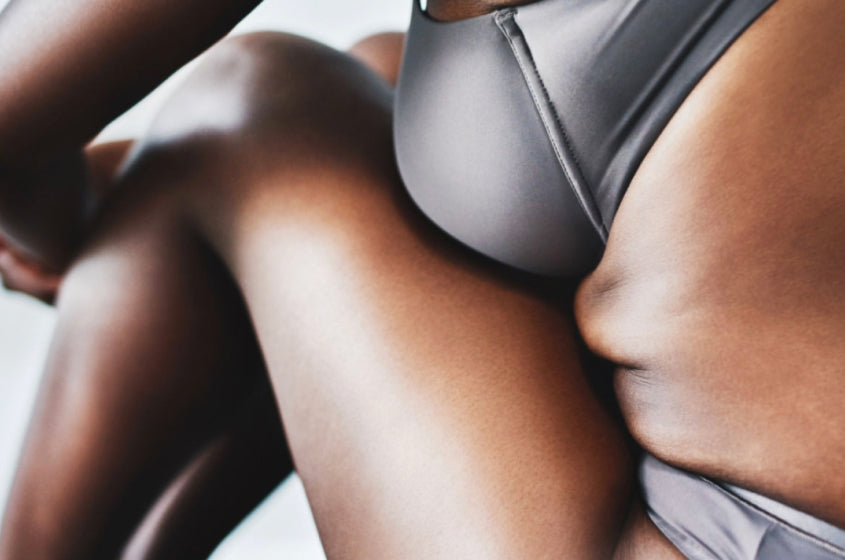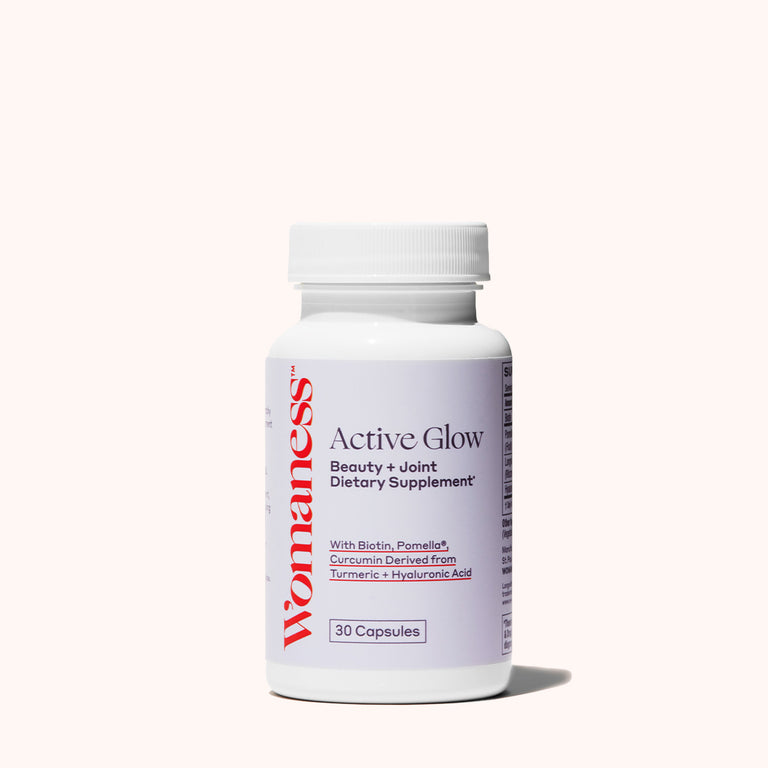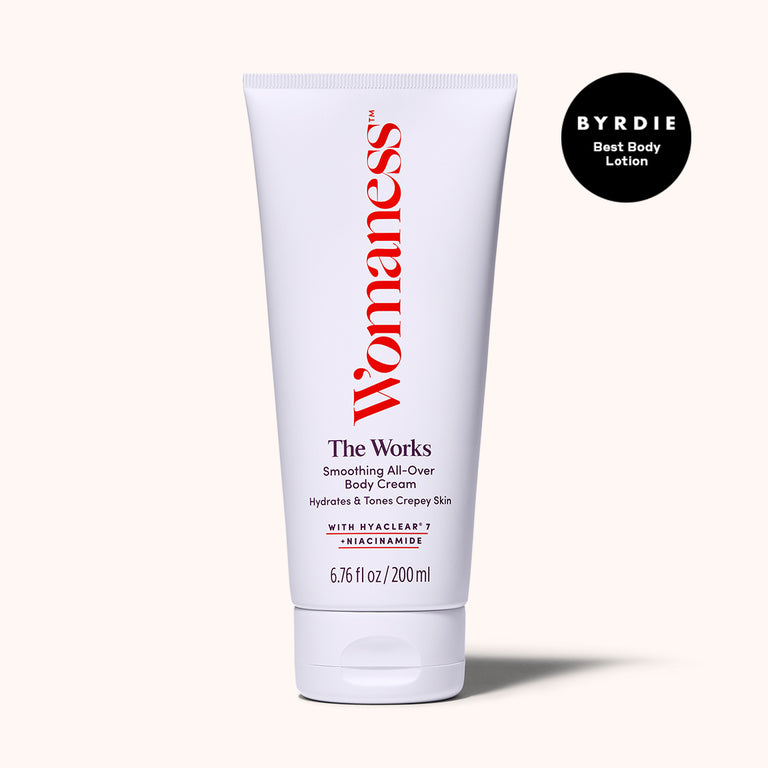By Michelle Jacobs 5-Minute Read
I’ve heard that, on average, women gain 5 or 10 pounds every decade. In my personal experience, I’d say 10 pounds sounds about right—and in 2020's lockdown, I'd say 15, easy!
I come from a family of tall, skinny women. I am the shortest and, ahem, the roundest. If I breathe near chocolate chip cookies, I gain a pound. (I also have zero willpower.)
Whether it’s due to unlucky genes that won’t let me fit into my good jeans, or the commentary of family members—am I “up,” am I “down,” have I been “good”?—I’m obsessed with my weight. Not in a scary, unhealthy way, but the scale does affect my mood. And though I can accept a lot of things about myself—my aging; my lack of athletic ability; my curly, unruly hair; my quick temper; my mild ADD—my weight is the constant. I’ve tried everything: keto, Whole30, intermittent fasting, plain old fasting—you name it. Sometimes it works. Sometimes it works temporarily. But the battle rages on.
I’m writing this because a lot of friends and women I’ve met along my Womaness journey tell me the same story. It's hard. It's hard to live life joyfully and carefree (because to me, that means eating yummy stuff all day) when you gain and hold on to weight too easily.
About two years ago, while once again scrolling weight loss gurus, trainers, and nutritionists on Instagram, I came across Jordan Syatt. He writes about two things: calorie deficit and weight training. Something he said made sense to me. No matter the diet, it's fewer calories that make the difference. You can eat 1200 calories of pizza or chicken breasts, but 1200 calories is 1200 calories. He also talks about lifting heavy weights, explaining that it’s not the 100 burpees or endless jogging on the treadmill that transforms your body into a stronger, well-moving machine, but actually going to that scary, intimidating place in the gym—the place with the big bars and heavy equipment. In desperation, I DM’d him, pleading with him to be my coach, but he was fully booked. Instead, he recommended Kim Schlag, who works with women “like me.” Like me? Great, I thought—he just kicked me over to the old-lady trainer who will make me go to barre class or something horrible like that.
“I’m obsessed with my weight. Not in a scary, unhealthy way, but the scale does affect my mood.”
But Kim was nothing of the sort. She’d gone through her own life transformation. Having gained a lot of weight after her kids were born (sound familiar?), she’d let that weight hang around, did the 10-pound per decade thing, and found herself exactly where I was. The difference? She worked her butt off to become an amateur powerlifter champion. I started to work with Kim and learned so much that I often think (in my head) that I’m basically a trainer myself.
Kim taught me about weightlifting, and I ended up loving it. She had me doing things in the gym I never thought I’d do. She challenged me to put down the 5 and 7.5 pound barbells and try the 20s, 30s, and even the 40s...to push my body and actually build muscle. I was doing deadlifts and Romanian deadlifts (I had to look those up multiple times to keep them straight) and I began lifting 150 pounds—sometimes more.
“I even had to send her pictures once a month. I could barely look at them, but she would circle my new muscles, tighter legs, and higher butt and point out the successes that I refused to see.”
And while she listened to me complain endlessly about my ups and downs, aches and pains, fears and embarrassments, Kim was persistent and kept me in check. She had me send her videos to make sure I was doing things right. I even had to send her pictures once a month. I could barely look at them, but she would circle my new muscles, tighter legs and higher butt to point out the successes that I refused to see.
My body had indeed transformed. No, I hadn't lost the 20 pounds I’d dreamed about but I looked different. My arms were strong, my butt was tight, and I could start to see real abs breaking out. And, hello, I loved going to the gym! I wasn’t bored running on a treadmill or in pain from a hard-to-follow bootcamp. Instead, I felt cool and confident as I walked right up to the weight bar. I knew how to use it and was lifting as heavy as some of the men next to me.
“My body had indeed transformed. No, I hadn't lost the 20 pounds I’d dreamed about but I looked different. My arms were strong, my butt was tight, and I could start to see real abs breaking out.”
By the time Covid hit, I was forced back into my basement—and back to my 10-pound weights. Eighteen months later, I was 15 pounds heavier (who wasn't?!). But you know what? I’m back at it again. The calorie deficit is working—I’m down 13 pounds already. Even better, I’m back in the gym. I’m starting small, only deadlifting 90 to 100 pounds, but I'll build it back because I know how...and this time I'll push to 200 pounds! I can only thank Kim for teaching me what no one else was telling me: There are non-scale-related wins that will get you to love your body. I might still be in bigger jeans, but underneath, I am strong and healthy. From everything I have learned, once I am 60, 70, and 80, and beyond, my muscles, bones, and joints will be ready for anything.
More Interviews & Essays
3 Types of Exercises to Do in Menopause
Food, Exercise, & Losing Weight in Menopause
What Should I Eat During Menopause?





